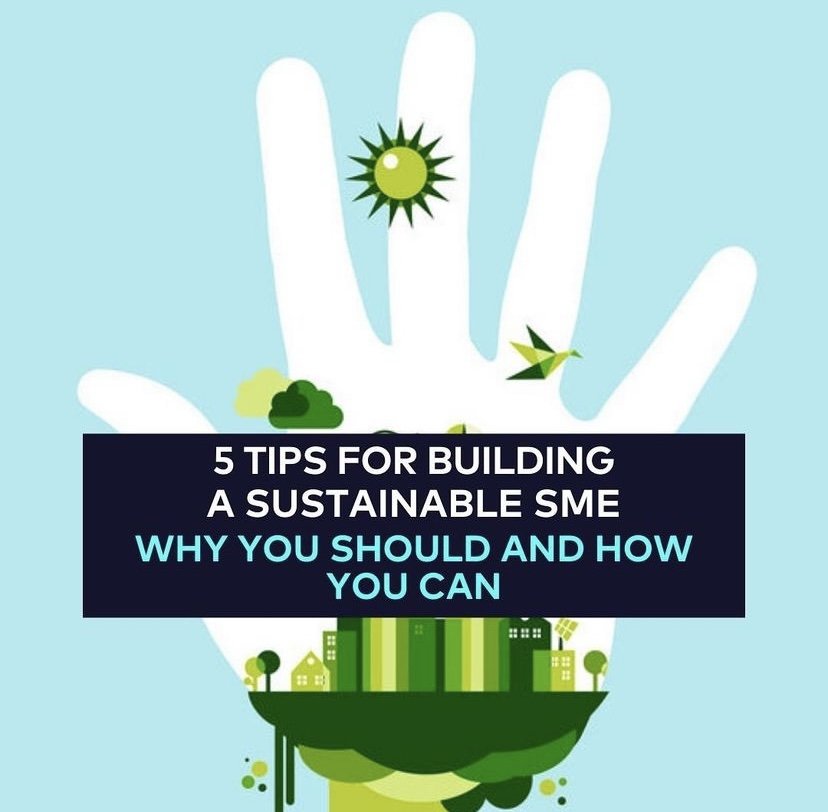Guest Blog: SOOK on 5 ways to build a sustainable SME
Guest Blog: SOOK on 5 ways to build a sustainable SME
ESGmark® member SOOK on how they put sustainability at the heart of everything they do - and how your business can do the same.
Sustainability - it's a word we talk a lot about at Sook, but what does it really mean in practice? We could tell you all about the environmentally friendly fit-outs of our spaces, or our commitment to making the high street accessible for all - but we thought it might be more helpful to provide actionable insights into how entrepreneurs and business owners, like you, can ensure your brand does better (from an sustainability perspective).
Sustainability in business is being taken seriously. The shackles of buzzwordery have been cast off, and it’s been elevated, rightly, to the mainstream. For a small business without a dedicated department, though, it can feel like a minefield. You know you should be a sustainable business, but how can you be sure that you’re behaving like one?
Understand what ‘sustainable business’ means
Ultimately, running a sustainable business means operating in a way that prioritises the well-being of the planet, and the well-being of her people, over the drive to make profit. You might think that this would be unpopular with the leaders of big business, but even as far back as 2018, over 90% of CEOs believe that sustainability is imperative for their business success, and were focusing on introducing sustainability initiatives and strategies.
The world, and the economy, has changed dramatically. Grown out of the need to plan to manage resources, our current model, pioneered by Adam Smith in the 18th century, has matured, without reflecting the new issues that we face now: massive inequality in the distribution of wealth; and environmental destruction and climate change. Analysts and economists are shifting to more progressive models, such as Raworth’s Doughnut, that take into account what would previously have been dismissed as ‘variables’, as opposed to fundamental parts of the system, and propose a way of conducting business that allows humanity to thrive.
Click here to watch Kate Raworth’s Doughnut Economics
Changing the way we do business is essential to how we tackle these issues, and ‘becoming sustainable’ is the holy grail. But where do you start? In 2015 the UN agreed to a set of 17 Global Goals that would lead to a better world by 2030, goals that primarily focus on eradicating poverty, fighting inequality and ending climate change.
Aligning your business with these goals is a great place to start, and they have a resource section for businesses with suggestions on action that we can all take on our path to sustainability. With that in mind…
what can i do to make my business more sustainable?
1. Connect with the issue
You may already be super driven by the factors mentioned above, but if you aren’t (or even if you are) make sure you find out as much as you can about them through research until you can strengthen the connection you feel to the cause. Reflect on how each of them affects you and people you know, either directly or indirectly. It won’t be hard to relate, or to understand why we need to take care of our planet.
2. Contribute positively to your community
Whether due to the financial crisis, or due to high-profile cases covered by the media, peoples’ trust in business has been eroded. As a small business, you are in the perfect position to engage directly with people, and use tools like collaborative retail space provider, Sook, to be a physical asset to your community, and help rebuild confidence.
3. Assess and innovate regularly
Very few businesses start off perfectly sustainable (if there is such a thing), especially as the whole world is learning as we go along. It’s ok to acknowledge that there are areas where you could be doing better, as long as you make plans to improve.
a) Are there operational changes you can make? Such as changes to a supplier, or changing up your manufacturing process?
b) Can you make sure your commercial waste is being recycled properly?
c) Or can you encourage customers to make different, more sustainable choices, such as having an opt-out of packaging?
4. Set a long-term, holistic vision
Let’s do some planning. Try not to think about short-term customer happiness - if you’re being authentic and you enjoy your work, then all that unbridled joy should rub off on them! Rather, set yourself realistic goals that align with the cultural shift, such as aiming to reduce your carbon footprint, or focusing on making sure your supply chain treats people fairly, end-to-end.
5. Turn competitors into collaborators
Here at Sook, we love a collab. Not just because our business centres around sharing retail space, but because we understand the power of community. There is true power in working together for the good of all. It’s also important to have the confidence to influence our new friends. If you lead the way with sustainability, then your competitors will likely follow suit, which benefits the planet, and benefits us all.
Last year, the UK private sector business population was made up of 3.2 million sole proprietorships (56% of the total), which means the decisions we make and the actions we take are capable of having an impact, on both our communities and our planet.
Thank you to the SOOK team for sharing their business expertise. For more on SOOK, their business spaces and opportunities to work together - head over to their website.
ESGmark® works with companies across all industries and sectors to embed ESG into your business DNA. For more on this, see our guide on establishing your ESG policy commitments, our guide to the UN’s Sustainable Development Goals, and our blog on ESG as a competitive advantage.

